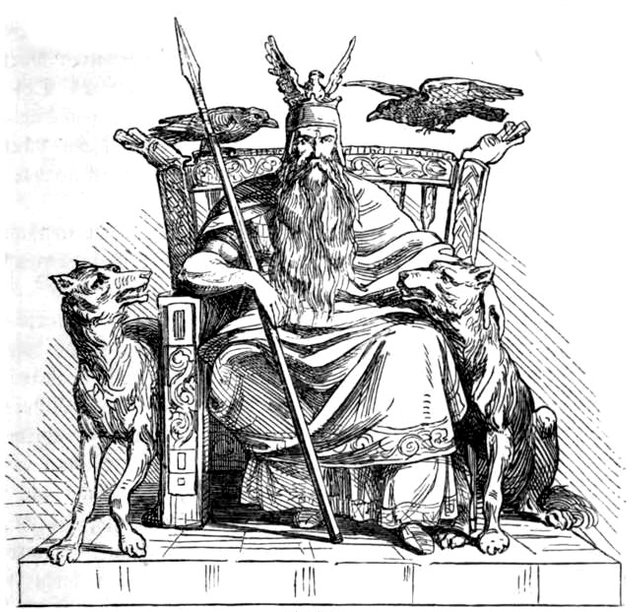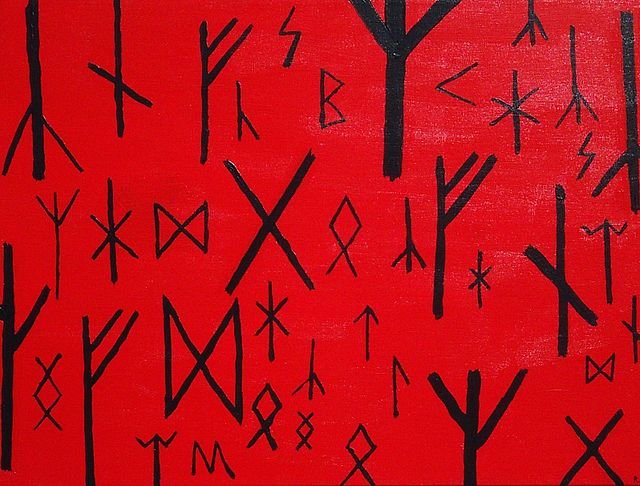The myths of Man: Odin the Allfather
Welcome to the Legends of Odin

In this series, we venture into the realm of Norse mythology to unravel the tales surrounding one of the most fascinating and complex figures in the Norse pantheon: Odin. Just like Greek mythology, Norse mythology is filled with intriguing stories that often involve gods, giants, battles, and cosmic events. So, let's dive into the mythos of Odin and explore the many facets of this enigmatic deity.
Odin, known as the Allfather, is a central figure in Norse mythology, revered as the ruler of Asgard and the chief of the Aesir gods. He is often associated with wisdom, war, magic, poetry, and death, embodying both the creative and destructive forces of the universe. Much like the Greek gods, Odin's behaviour is not without controversy, as he too engages in actions that would require an NSFW tag in modern terms.
One of the most well-known stories involving Odin is his pursuit of knowledge and wisdom. In this regard, Odin is portrayed as a seeker of hidden truths and arcane knowledge, even to the point of sacrificing his own eye. According to the myth, Odin hung himself from the World Tree, Yggdrasil, for nine days and nights, pierced by his own spear, in order to gain insight into the mysteries of the cosmos. This self-inflicted torment granted him immense knowledge, making him the wisest of all gods.

Odin's association with war and battle is another significant aspect of his mythology. He is often depicted as a fierce warrior, leading the charge alongside his fellow gods during times of conflict. Odin's chosen warriors, the Valkyries, are fierce female warriors who serve as his loyal companions, selecting fallen heroes to bring them to Valhalla, the grand hall of the slain. Valhalla is where fallen warriors are welcomed, and they spend their afterlife feasting and preparing for the final battle of Ragnarok.
However, Odin's complex character extends beyond his quest for wisdom and his involvement in battles. He is also known for his magical abilities and shapeshifting prowess. Odin can transform into various creatures, often appearing as an old wanderer with a long cloak and wide-brimmed hat. He frequently disguises himself to interact with mortals, testing their worthiness and dispensing his wisdom in cryptic riddles.
Despite Odin's elevated status among the gods, his actions are not always honourable or benevolent. Like many other deities, Odin's behaviour can be morally ambiguous, with instances of manipulation, trickery, and even acts that could be deemed as cruel. However, it is precisely these complexities that make Odin a compelling figure in Norse mythology, reflecting the intricate nature of the human psyche.
The role of the gods in Odin's story is also worth noting. In Norse mythology, the gods are not portrayed as infallible or purely virtuous beings. They have their own flaws and personal agendas, which often lead to conflicts and unexpected consequences. Odin's actions, while sometimes questionable, highlight the intricate web of relationships and power dynamics among the gods.
In conclusion, the mythos of Odin is a rich tapestry of tales that intertwine wisdom, war, magic, and the depths of the human experience. Odin's multifaceted character embodies the complexities of gods and mortals alike, showcasing the interplay between light and dark, wisdom and folly, power and vulnerability. Exploring the myth of Odin opens a doorway to the captivating realm of Norse mythology, where gods and heroes grapple with their own desires, ambitions, and the looming fate of the cosmos.